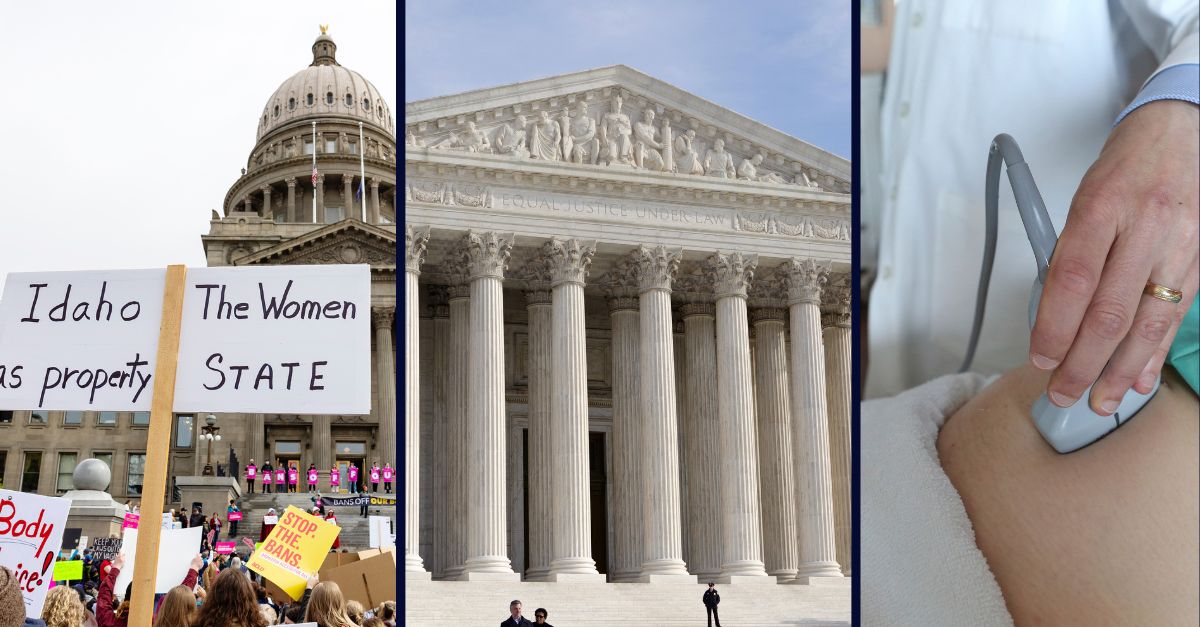
Left to right: An attendee at Planned Parenthood’s “Bans Off Our Bodies” rally for abortion rights holds a sign outside of the Idaho Statehouse in downtown Boise, Idaho, May 14, 2022. (Sarah A. Miller/Idaho Statesman via AP); the U.S. Supreme Court 2011 file photo. (AP Photo/J. Scott Applewhite); a doctor performs an ultrasound scan on a pregnant woman on Aug. 7, 2018, at a hospital in Chicago (AP Photo/Teresa Crawford)
On Wednesday, the U.S. Supreme Court weighed the consolidated cases of Moyle v. United States and Idaho v. United States, considering the contentious question of whether hospitals must provide abortions in emergency situations in Idaho after long-standing protections under Roe v. Wade were overturned two years ago.
Idaho‘s near-total abortion ban went into effect shortly after Roe was reversed and the Supreme Court opted to uphold the state ban as this legal fight with national implications played out. The only exceptions in Idaho are ectopic pregnancies and to prevent the death of the pregnant woman, and there are some exceptions for rape and incest.
As Law&Crime previously reported, the Biden Administration through Justice Department attorneys argue that a 1986 law known as the Emergency Medical Treatment and Labor Act (EMTALA) can and does, under certain emergency circumstances, override state bans like Idaho’s that criminalize abortion providers, threaten their medical licenses and impose a two-year mandatory minimum — and five-year maximum — sentence if convicted.
EMTALA states that emergency room providers are required to “stabilize” people when they present with a health emergency. But Idaho argues that the Justice Department interpretation on this is wrong and when it comes to abortion, it proposes boundless federal overreach that attempts to backdoor abortion procedures where they are outlawed.
As The Associated Press noted ahead of oral arguments and as Justice Elena Kagan cited Wednesday from the bench, since the restrictions in Idaho went into effect, hospitals there have had to fly patients requiring an abortion to stabilize their health out of the state on no less than six occasions.
Solicitor General Elizabeth Prelogar, arguing for the government, said it was “once a week every other week” since the ban went into effect.
What Idaho has now achieved with its ban violates medical health care standards nationally, she argued.
“Doctors,” Prelogar said Wednesday, “have to shut their eyes to everything except death.”




